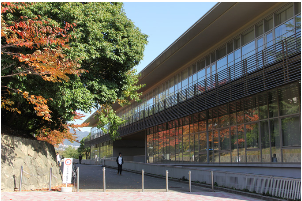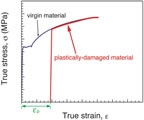| Academic Articles | |||||
| Regular Paper | Vol. 11 No. 4 (2020) p.124 - p131 | ||||
Verification Benchmark Analysis of Structural Reliability Evaluation Codes for Fast Reactor Components |
|||||
|
Shigeru TAKAYA1,*, Naoto SASAKI2, Toshiki OKAMOTO3 and Hideo MACHIDA3 |
|||||
|
1 Japan Atomic Energy Agency, 4002 Narita, Oarai, Ibaraki 311-1393, Japan 2 Ascend Co., Ltd., 4002 Narita, Oarai, Ibaraki 311-1313, Japan 3 TEPCO Systems Corporation, 2-37-28 Eitai, Koto-ku, Tokyo 135-0034, Japan |
|||||
| Abstract | |||||
| This paper describes benchmark analysis of independently programmed structural reliability evaluation codes, REAL-P and GENPEP. An upper core structure of a prototype fast breeder reactor in Japan, MONJU, was chosen, and crack initiation time and crack propagation due to fatigue-creep interaction damage was evaluated in deterministic and probabilistic manners. Evaluation procedures follow the new guidelines on reliability evaluation of fast reactor components issued by JSME. The results obtained by two codes were compared, and the effects of differences in treatments of which details are not prescribed in the guidelines on results were discussed. As result, although slight difference was recognized in crack initiation evaluation especially due to difference in fairing treatment of fatigue life curves, the results estimated by two codes generally agreed very well for both deterministic and probabilistic evaluations. It was shown that the effects of differences in treatments of which details are not prescribed in the guidelines on results are small for structural reliability evaluation of fatigue-creep interaction damage, which is one of typical degradation mechanisms for fast reactor passive components. | |||||
| Keywords | |||||
| System Based Code concept, Inservice inspection, Fatigue-creep interaction damage, Crack initiation, Crack propagation, Deterministic evaluation, Probabilistic evaluation, Plant safety | |||||
|
Full Paper: PDF
|
|||||





